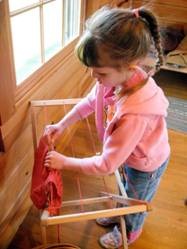
Are your kids the most precious, amazing and wonderful things in the world?
If you are not sure, keep reading.
Parents, like most people, often view the world in absolute terms – “This is pretty”, “This is wrong”, “This smells good” or “How rude!” Naturally, the way they view their children is similar. They break each child down into separate properties, such as looks, math skills, strength and manners, and assign a rating or a score to each one of these important aspects in each child.
The result is disappointing more often than not, simply because nobody is perfect in every way, let alone kids, who undergo big changes and have not mastered every rule in their parents’ book. This is particularly apparent during the teenage years, when even calm and obedient children turn into full-sized, defiant and opinionated creatures. Many parents of teenagers are so focused on what their sons and daughters are not doing (right) they have a hard time remembering how they behaved last year, when they were still in primary school.
But your kids are the most precious, amazing and wonderful things in the world.
Really.
First, consider the odds of any of them being born at all. Out of thousands of potential partners in your life, you have chosen only one to have each child with. That child would not be the same if you had chosen anybody else.
Out of hundreds of eggs and billions of sperm, only one sperm combined with one egg to produce each child. The odds of having that particular child with those particular physical traits and basic character make winning the lottery seem like a sure thing.
Read Wonders of Creation »















